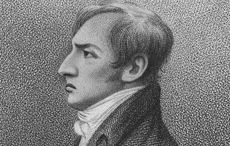Doping, dirty water, the Zika Virus, crime and security concerns, grinding poverty abutting Olympic glitz.
The 2016 Summer Olympic Games in Rio have stacked up their share of negative stories.
But while the Rio games undoubtedly have their more negative aspects, the general backdrop is not nearly as frightening as the one that loomed over the 1936 summer games in Berlin, the Hitler Olympics.
That backdrop, and the foreground, were dominated by Adolf Hitler.
So much so that one of the casualties of the war he would unleash three years after the youth of the world gathered in Berlin would be the very same Olympic Games, which he had presided over in his Reich capital.
Those 1940 games were to be held in Tokyo - as are the 2020 summer games.
The ’36 gathering was, from Hitler’s perspective, an opportunity to demonstrate to the world the superiority of the Aryan German people.
This was flagged well before the athletes arrived in a Germany that was already a combatant in the Spanish Civil War, was gearing up for war on a much wider stage, and was busy enacting race laws aimed at German Jews and others considered to be “Untermensch.”
Read more: GQ magazine says Irish silver-winning rowers are stars of the Olympics
Enter Jack Shea.
Now it has to be stated that many in America and in other countries around the world were distinctly uneasy about participating in the Berlin games.
And uneasy for a variety of reasons.
At the same time, just as is the case today, there was a prevailing view that the Olympics were above and beyond politics and needed to be kept separate from the more dubious aspects of human behavior.
Jack Shea, a double American gold medalist in speed skating from the 1932 winter games in Lake Placid, New York, doubtless took that view into account, but what persuaded him to take a stance against U.S. participation in Berlin could not be categorized as merely politics.
Shea, a devout Catholic, was attuned to the reality of religious persecution and what was happening to German Jews in particular had sealed his view that an American boycott was a matter of the highest moral principle.
Shea was a native of Lake Placid; as such he was the ultimate home town hero.
Indeed, he was a member of a family that would contribute multiple Olympic athletes over time.
The Shea family ran a grocery story on Lake Placid’s main street and many of the summer customers were Jews from New York City and elsewhere.
Lake Placid was a long way from Hitler’s Germany.
But the stories were beginning to filter across the Atlantic and into the Adirondacks, and they were not good.
Shea formed the opinion that American participation in Berlin was tantamount to acquiescence with Nazi race policies.
Given his exalted status, his views carried weight and they would ultimately clash with those of Avery Brundage, President of the American Olympic Committee, and those who supported his stance in favor of America’s participation.
It should be stated that many who wanted the U.S. to compete in Berlin did so out of a genuine desire to show up Hitler’s racial notions for the rubbish that they were.
So it is not hard to imagine that Shea was among the millions who cheered when athletes such as the great Jesse Owens threw the Fuhrer’s nonsense back in his face.
But Shea – who before the end of his life would visit Ireland thirteen times – was also on the mark with his fears for German Jews, and those others who would be crushed under the Nazi jackboot as the cheers from the ’36 games faded into silence.
Jack Shea’s story, and that of his personal stand against tyranny, is told in a new book, “Keeper of the Olympic Flame,” written by another upstate New Yorker, Michael J. Burgess.
It is available on amazon.com.




Comments